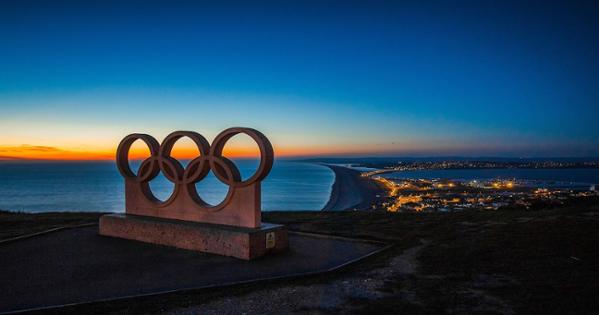Paris 2024: Will Current Conflicts Impact the Diplomacy of the Upcoming Olympics?

Introduction
The upcoming 2024 Olympics in Paris has been anticipated by many for the last several years. France will host the games and will welcome over 15,000 athletes, 9,000 journalists, and millions of spectators. The games themselves are expected to be watched by 4 billion people worldwide as diverse nations come together to celebrate athleticism.
Despite this anticipation, there is much concern about the atmosphere of these upcoming games. The Olympic and Paralympic Games have always been a chance for the host country to promote their culture and values, placing France in a unique position for facilitating diplomatic relations at these games. Due to both the Ukraine War and the Israel-Hamas War, the importance of positive diplomatic relations between dignitaries is imperative. However, the International Olympic Committee (IOC) and the French Ministry for Europe and Foreign Affairs may have larger concerns than the relations between state diplomats. This year, issues may arise between athletes, affecting the age-old tradition of Olympic Truce, known as “ekecheiria.”
Background
The Olympic Games are an ancient tradition, dating back to 776 BC in Greece. The modern Olympics as we know them were created in France in 1894. For the first six decades of the games' history, Europe shared the organization of the games with the United States before the birth of the IOC. Until 1968, Europe and the US hosted the games (with the exception of the 1956 games in Australia), solidifying Western dominance of the Olympics. After the founding of the IOC and the European Union (EU), Europe still had a large hand in managing the games’ affairs. Many of the EU’s efforts and causes have been mirrored in IOC rulings and regulations. For example, the EU’s fight in 1996 against gender discrimination impacted the adoption of a resolution by the European Parliament on the non-participation of women from certain countries in the Olympic Games. Another example is the EU’s efforts to make sports and the Olympics more inclusive to handicapped athletes, especially through the European Commission’s involvement in the Paralympic Games in Tignes (Albertville) and Barcelona. However, the most prominent intervention from the EU is the promotion of the Olympic Truce. The Olympic Truce is a tradition that dates to ancient Greece. Known as “ekecheiria,” it guaranteed a peaceful environment for both the athletes competing and those watching the games. Today it is made as a solemn appeal by the President of the General Assembly at the start of both the Olympic and Paralympic Games. The European Parliament sought to create a resolution that would call on all EU Council of Ministers to comply with the Olympic Truce and promote peace and dialogue during the games. The EU’s involvement in the creation of the games and the way in which the EU has shaped states’ interactions is important, especially regarding the current conflict between nations. It is undeniable that the EU has shaped the modern Olympics to what they are today, and what occurs at the 2024 games will impact how the Olympics and IOC are viewed in future competitions.
The Current Issues
As previously stated, these coming games are surrounded by conflicts. Only four days after the last games in 2022, the Russian invasion of Ukraine began. Due to the invasion, Russian and Belarusian athletes are now barred from representing their nations in the games and cannot compete under their national flags. These athletes are only allowed to compete if they are not “actively supporting the war in Ukraine.” This makes the number of Russian and Belarusian athletes competing incredibly small due to the role that these governments play in the sports systems of their countries. The athletes will compete as individual neutral participants, which is different from how Russian athletes have competed in the past. Since the doping scandals in 2014, Russian Olympic athletes have only been allowed to compete under the Russian Olympic Committee (ROC), which is not officially affiliated with the Russian state. Now the only thing they are allowed to represent is themselves.
The Russia-Ukraine War is not the only conflict plaguing this Olympics; the Israel-Hamas War has also become a key issue that is impacting the sports world before the games have even begun. Recently, , Ireland’s team refused to participate in any of the usual pre-game courtesies with their Israeli opponents. This is due to an Israeli player stating in an interview leading up to the games that the Irish players “are quiet antisemitic”. This remark upset the Irish team who reported it to FIBA Europe, resulting in a lack of pleasantries between players. This is not a new phenomenon, as in the last few months since the beginning of the conflict in Gaza, athletes have called for a ceasefire and for FIFA to ban Israel from participating in soccer matches.
Despite this outcry, the IOC has not put the same boundaries on Israel as they have Russia. The IOC has said very little about the conflict, despite the deaths of the Olympic coaches and athletes who have been killed in the Israeli offensive. The Palestinian Football Association claims that more than 85 athletes died between October 6th and December 6th, 2023. The Palestinian Olympic Committee states that the loss has risen to 170 people, including the Olympic football team coach Hani Al-Masdar and volleyball star Ibrahim Qusaya.
Due to all these terrible occurrences, the IOC and the French Ministry for Europe and Foreign Affairs are facing a challenging time for diplomacy. The result will impact both state and individual athletes’ positive relations, with conflict between athletes at the forefront of concerns. Although politics are difficult to escape, the athletes must take steps to try and be as neutral and apolitical as possible while competing in the games. Furthermore, a discussion on the connection between the EU, the US, and the IOC should take place. The conflicts in Ukraine and Gaza should cause the EU to reconsider its role in the Olympics and the influence they have over the IOC. Europe and the US have always had an important diplomatic role internationally, but perhaps these powerful states should take a step back when it comes to influence over the IOC. This is not to say that no nation should be sanctioned from the Olympics, but perhaps there should be a less biased approach to who is sanctioned, and steps should be taken to ensure the safety of athletes who are members of the Olympic Committees that are to compete. The Olympics are intended to celebrate athleticism and global cooperation, and it is up to those participating to ensure these core values are respected.
About the Author

Madeline Drafall is a BA/MA student at American University’s School of International Service. She will graduate with her bachelor’s in international studies in December 2024 and her master’s in peace and conflict resolution the following year. Madeline enjoys researching topics about conflict, crisis management, and diplomatic relations between states, and she has a passion for the Olympic Games.
